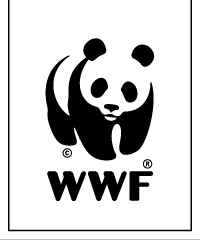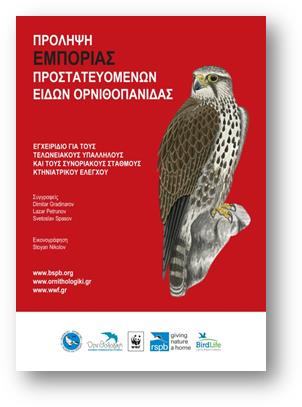Illegal wildlife trade: action taken to fight it in Greece
Monday, 22 February 2016
Illegal wildlife trade is a serious issue that affects many animal and plant species all over the world. However, it is also a highly profitable business that is spreading worldwide. Every year the aggregate number of victims surpasses 10 million wildlife animals and plants, while the turnover of illegal activity is estimated at about 22 billion dollars, making wildlife trade the fourth most lucrative illegal trade globally.
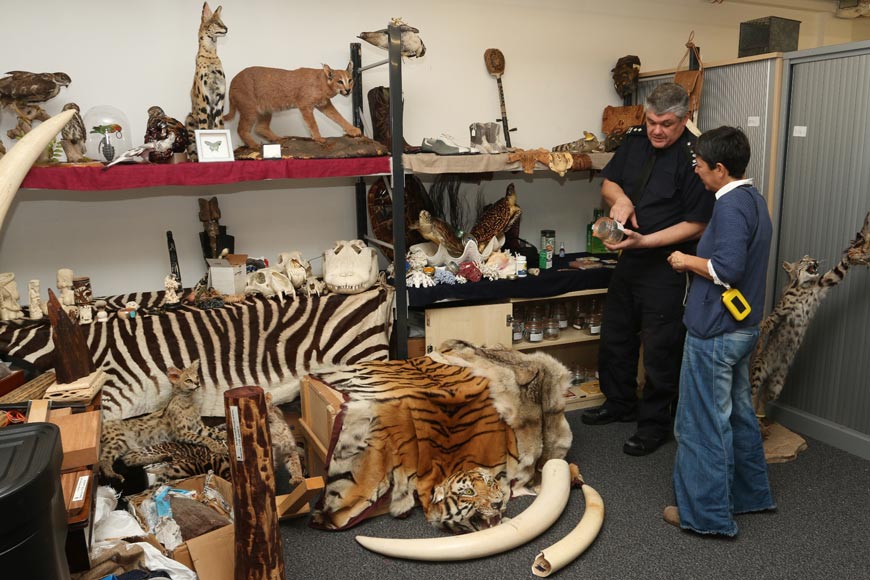
Guy Shorrock/RSPB
Certain “famous” species are facing mass extinction as a result of increasing demand for illegal wildlife trophies and souvenirs. In Africa every year 30,000 elephants are killed for their ivory. However, illegal wildlife trade does not only affect these “famous” species (mainly tigers, elephants and rhinos) but also species such as turtles and parrots, which are intended as exotic pets.
What is going on in Europe and Greece? In the recent international police operation COBRA III that was organized by the joint forces of Interpol and Europol, amongst others, among the findings confiscated were: 90 kg of coral and more than 50kg of wildlife animal parts in Spain, 50 kg of elephant ivory in France, and 400 living turtles in England.
Recently the first incident of illegal wildlife bird trafficking was documented at Evros, Greece. At the customs in Evros a bird of prey was found in a car that was passing from Turkey to Greece with its final destination being England. The traveller was found to have a Long-legged buzzard (Buteo rufinus) without having the necessary rings and documents to prove his legal possession of the bird. As a result the bird was confiscated and the trafficker was punished with a fine and a suspended prison sentence.
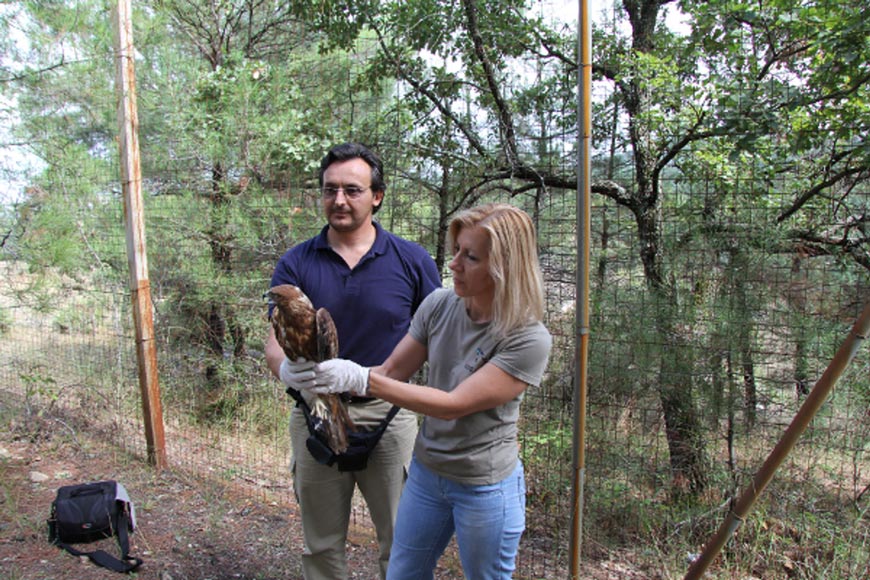
Φορέας Διαχείρισης ΕΠ Δαδιάς
Personnel from the Soufli Forestry Agency and the Dadia-Lefkimmi-Soufli National Park are looking after of the long-legged buzzard that was confiscated.
Greece occupies a critical geographic location on one of the main corridors used for illegal wildlife trade to be passed into Western Europe; and so Greece constitutes a potentially important link to this illegal activity. Incidents of illegal trafficking of wildlife species and/or parts have been recorded at points of entry and exit of Greece in the past. For this reason there is urgent need for the personnel working at the borders to have the necessary tools at their disposal in order to combat illegal wildlife trafficking.
This is why WWF Greece and the Hellenic Ornithological Society conducted several educational seminars for customs officials and police officers that work at customs and border posts in Thrace, the Epirus, Macedonia and Attica, for the prevention and tracking of crimes against wildlife. They also proceeded with publishing a special recognition guide for avifauna, which was distributed and allocated to customs and other authorities, such as veterinary inspection border posts.
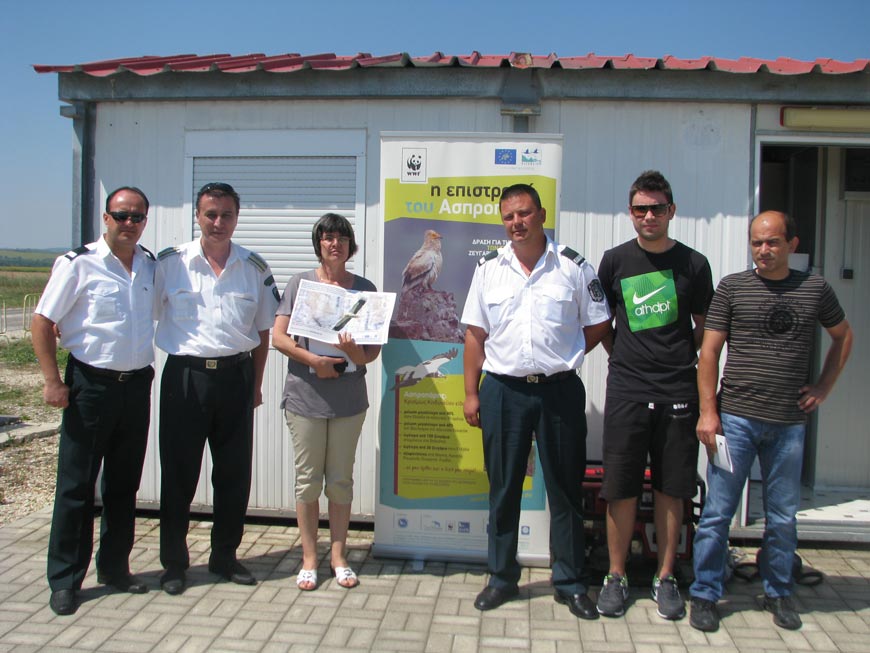
WWF Ελλάς
Presenting the guide to customs officers in Thrace
The aim of this guide is to help control the legality of incoming and outgoing cargoes. The handbook includes an identification guide for avifauna, a short description of the International and Greek law regarding wildlife trade and a description of the most common ways and techniques used for the concealment and trafficking of animals. Furthermore, it gives practical advice for the immediate treatment of such incidents.
We hope this way to help support the ability of the Greek authorities to deal with dangers that threat the fauna of our planet, and especially the endangered Greek species, such as the Long-legged buzzard, which are already at the brink of extinction.
“If we take into consideration that the horn of a rhino killed in Africa can reach the markets of Asia in less than 48 hours, we can see that illegal wildlife trafficking is part of a global chain. For this chain to break, every country must take on appropriate action. In Greece we already have species, such as the Egyptian Vulture, which we know are targets of illegal wildlife trafficking in other countries”, stated Alkis Kafetzis, researcher of WWF Greece.
“For many years, illegal wildlife trafficking has not been taken seriously enough on a global scale, and as a result both the penalties and the detection tools to prevent it were minimum. However, the outlook on illegal wildlife trafficking is changing, since it is now considered one of the largest illegal circuits, after drugs and human trafficking. We hope that with the tools we provided to the Greek custom officials we are able to help them combat wildlife crime”, stated Victoria Saravia, Coordinator of LIFE+ for the Long-legged buzzard, for the Hellenic Ornithological Society.
Action to tackle illegal wildlife trade in Greece are undertaken under the LIFE+ project, "Urgent measures to secure the survival of the Egyptian vulture (Neophron percnopterus) in Bulgaria and Greece” LIFE10 NAT/BG/000152, co-funded by the European Commission and the Leventis Foundation.
Share this
